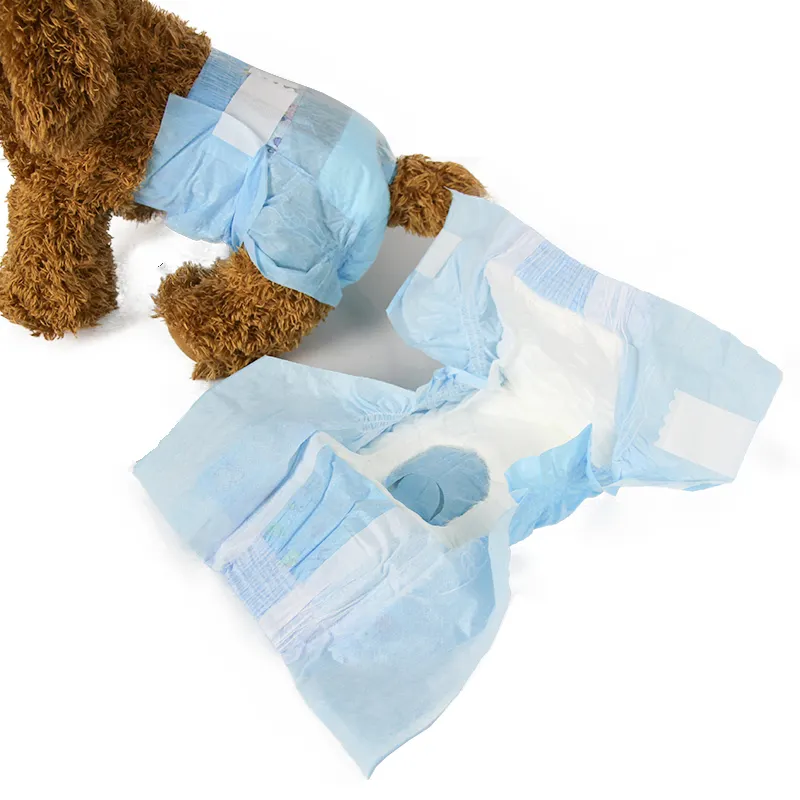Pet diapers
How dogs and owners can experience the “benefits” of dog diapers.
Loving dogs doesn’t mean putting up with their poop. We all hope that pets can eliminate in the right place like humans, but it always backfires. You should consider using dog diapers in the following situations:
1. Puppies that are not properly trained may excrete in unexpected places. Pet diapers can effectively protect your room from contamination until she learns to defecate in the right place; when a healthy female dog enters mating season, her menstrual period bloody secretions can also stain carpets and furniture. This may last two weeks or longer. Dog diapers can suppress this discharge and help a female dog in heat remain as unaffected by a male dog as possible until she is neutered;
2.If you rescue an adult stray that needs help, it may not know how to poop in the right places, or the stress of a new home may cause it to get into trouble. A pesky male dog might mark your room all over your house by peeing, while a submissive puppy might pee to “please you.” Don’t blame the dog in any of these situations, as the smell of urine can calm them down. In a new home, trimming the dog’s nails, fighting with the cat, or throwing away the food in its food bowl will make it feel stressed. The greater the stress, the more likely it is to “baptize” the new home through urine;
3. Modern pet dogs live longer and more fulfilling lives than before. Typically, responsible pet owners will not give up on pets they feed that have health problems. Instead, various accommodations are provided for them, including those with disabilities who can use dog wheelchairs. Even if disease causes loss of bladder or bowel control, the use of pet diapers allows these disabled pets to live well with their owners.
4. Just like some women of a certain age develop urinary incontinence due to the loss of estrogen, neutered female dogs will also develop this condition when they reach a certain age. Owners need to understand that this is not intentional.
Some veterinarian-prescribed medications can also increase urinary output and may cause dogs to urinate in the wrong places; finally, a certain percentage of older dogs will develop age-related cognitive problems, a bit like the dog version of Alzheimer’s. They may remember some of the previous training, but they may also forget that you told them the correct place to eliminate. Or they simply can’t “hold on” long enough to reach excretion.

